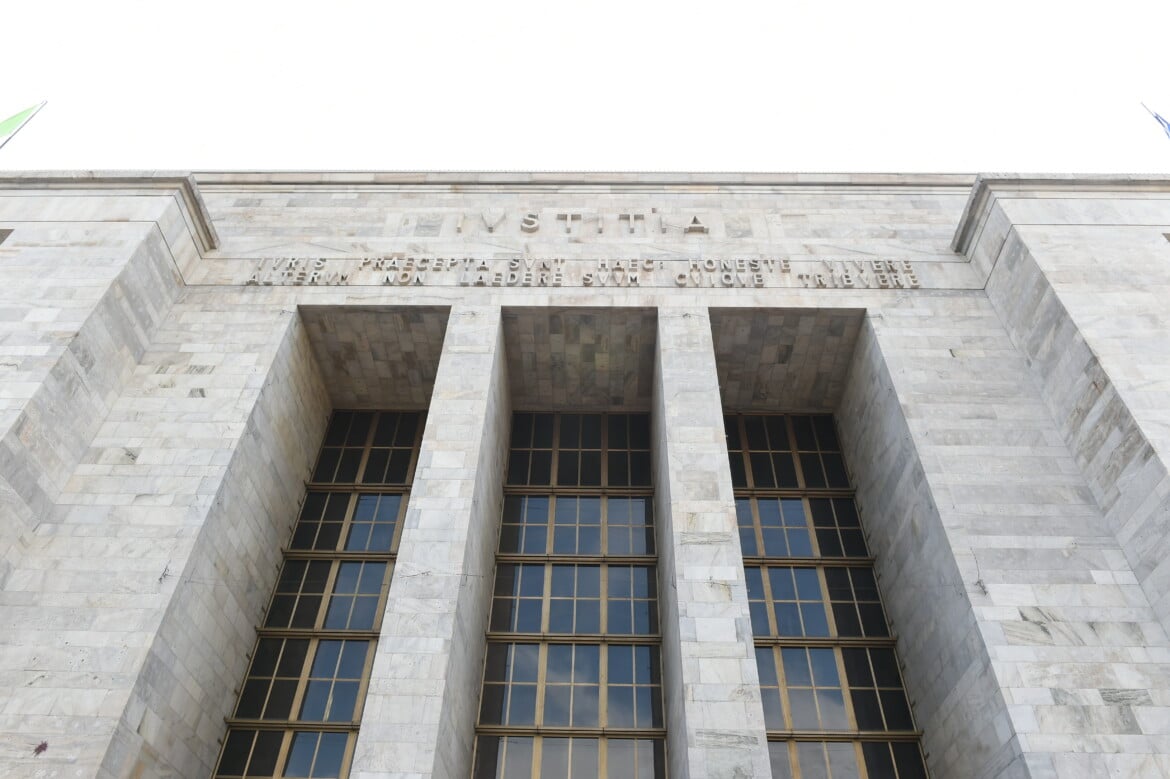Interview
Edmondo Bruti Liberati: Reform of prosecutor role will lead to a ‘police mindset’
‘Today they’re saying that no one wants prosecutors under the authority of the government. But rules and institutions have their own logic that goes beyond the intentions of those who drafted them.’

We spoke with Edmondo Bruti Liberati, Milan’s chief prosecutor until 2015 and a former president of both the Italian National Magistrates’ Association and Magistratura Democratica, about the justice reform proposal.
Is it really true, as Justice Minister Carlo Nordio claims, that his reform “restores dignity to magistrates”?
Magistrates earn their dignity by diligently carrying out the difficult task entrusted to them by society, and with the inevitable mistakes. They do not need a minister's “help,” which is actually demeaning: selecting the judges on the Superior Council of the Judiciary (CSM – Italy’s self-governing body overseeing the judiciary, similar to a judicial oversight board – n.tr.) by drawing lots prevents judges from freely choosing those they consider most suitable to perform the role of managing and defending the independence of the judiciary, which the Constitution entrusts to the CSM.
In your latest book (Pubblico ministero. Un protagonista controverso della giustizia, ed. Raffaello Cortina, 2024), you describe the role of the public prosecutor as extremely difficult, constantly under pressure. With separate career tracks for prosecutors and judges, do you think this pressure is likely to increase or decrease?
The public prosecutor is the first actor, in chronological order, in the criminal justice system. We demand that the public prosecutor find the guilty party, or at least one guilty party, immediately and arrest them, but we also ask them to strictly comply with procedural rules and defense guarantees. The separation of careers is supposed to bolster judges’ neutrality, yet the real risk is that a segregated prosecution service will drift toward a police mindset, more susceptible to pressure from “law-and-order” crusades.
However, there are many democratic countries in which the two careers are separate.
In many democracies, the prosecutors are separate from the judges, and in all of them, the government, through the Minister of Justice, exerts some influence over the prosecutors, but does so with great restraint. And wherever this is not the case, as in Poland, Hungary, and now the U.S., democracy is in crisis. Today they’re saying that no one wants prosecutors under the authority of the government. But rules and institutions have their own logic that goes beyond the intentions of those who drafted them. And then there is the reality on the ground. Nordio himself has repeatedly criticised prosecutors, most recently the appeal to the Court of Cassation on legal grounds by the Palermo prosecutor's office in the Open Arms case: today these are unwelcome intrusions, but tomorrow they could be orders. Even worse, Nordio has ridiculed and threatened disciplinary action against a magistrate who merely offered legal analysis in the Elmasry affair. It is well known that when arguments fail, people resort to insults, but this is not some dispute at a bar: it is the Minister of Justice speaking in his official capacity.
Let’s talk about the CSM. Nordio wants to split it in two, choose members by lot, and strip it of disciplinary power. Is this really “career separation,” or an attempt to break up the current factions?
For the reasons I have mentioned, I am opposed to the separation of careers that was at the heart of the parliamentary bills that have now lapsed. The Nordio bill is something else. It is, in fact, the reform, or rather the substantial elimination, of the CSM: broken up into two non-communicating bodies, its disciplinary powers taken away and given to a bizarre and dysfunctional High Court, and, with election by lots, its functioning left up to the luck of the draw. Let us recall the words of Justice Minister Guido Gonella on July 18, 1959, at the inauguration of the first CSM: “The rule of law requires that impartial justice be guaranteed for all, and therefore warns that the judiciary needs independence, guarantees of its independence. Now the independence of judges is reinforced by new constitutional and institutional guarantees. A fundamental constitutional precept is now being fulfilled.” The government bill still pays lip service to the principle of judicial independence in Article 104 of the Constitution. But the CSM, the body that guaranteed those fundamental safeguards so emphasized by Gonella, a Christian Democrat, is reduced to near irrelevance. And here we are talking about the independence of the judiciary as a whole: not only of public prosecutors, but also of judges.
Do you see the risk that the upcoming constitutional referendum will turn into a sort of popularity contest on justice? If this is the case, poll numbers are certainly not encouraging for the men and women working in the justice system.
It is now taken for granted that a “double lock” procedure – two successive readings of the bill, with an appropriate time interval between them, which the constituent assembly had envisaged – has been reduced to a mere formality. Branding the referendum as being on “career separation” would be fraudulent. And a referendum on the judiciary itself, as some are already casting it, would be a grave matter, not for the judiciary, but for the debate and discussion about our institutions. In all recent opinion polls, the level of trust in the judiciary, the third branch of government, stands at over 45%. That is low, but it is much higher, almost double that of trust in parliament and political parties. We should all be concerned about this overall lack of trust in the institutions of our democracy, rather than trying to undermine trust in the judiciary, the institution entrusted with the delicate task of protecting rights, resolving disputes between private individuals and prosecuting crimes, functions that are vital for civil coexistence.
Originally published at https://ilmanifesto.it/bruti-liberati-e-la-riforma-della-giustizia-il-rischio-e-che-i-pm-saranno-attratti-da-logiche-di-polizia on 2025-07-23
